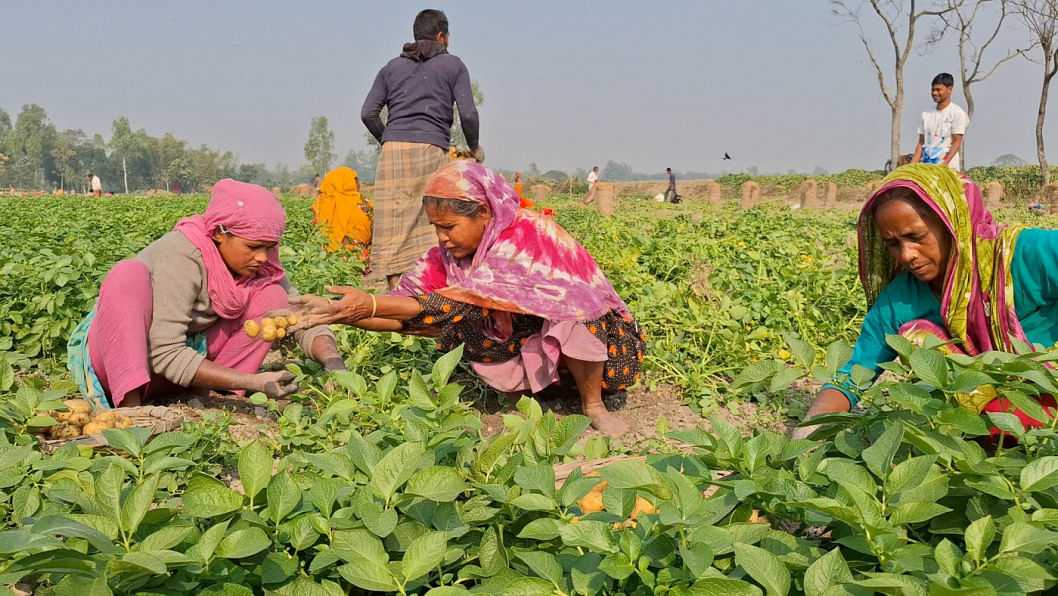Potato imports facilitated despite massive price fall

The National Board of Revenue (NBR) has allowed the use of nine more customs stations for the import of potatoes, specifically from Nepal and Bhutan, aiming to diversify supply sources and reduce dependency on India.
The nine stations include Rohonpur in Chapainawabganj, Sonahat in Kurigram, Dhanua Kamalpur in Jamalpur, Nakugaon in Sherpur, Gobrakura and Karaitoli in Mymensingh, and Tamabil, Zakiganj, and Sheola in Sylhet.
Earlier, potato imports were allowed through four customs stations, including Benapole and Bhomra.
This facility will remain in effect till March, according to a gazette issued on Monday.
Traders had sought the initiative last December, when prices of the tuber reached a record high of Tk 80 per kilogramme amidst a usual drop in stocks ahead of the harvest season between February and April.
Now the facility will have little effect as prices have fallen by a massive margin across the country, and farmers fear massive losses amid bumper harvests.
Azizul Islam, who heads a farmers' association in Dinajpur, expressed his frustration at the NBR's move.
"Why is the government still allowing imports now, when potatoes are available at cheap rates in Bangladesh?" he asked.
Islam, who hails from Gopalganj village in Dinajpur sadar upazila, highlighted the plight of local farmers.
"There has been massive production this year, and there aren't enough buyers… If the government continues to allow imports, farmers will suffer severely," he warned.
Potatoes in Dinajpur are currently being sold at Tk 13 per kilogramme (kg) at the fields and around Tk 15 per kg at retail markets.
"If farmers are forced to accept such low rates, they won't recover even the money spent on potato seeds, let alone make a profit amidst rising labour and land costs," he said.
Islam urged the government to immediately halt potato imports and support farmers through state purchases.
"The government must prioritise farmers and take the necessary steps to safeguard their livelihoods," he stressed.
Regarding the time taken for the facility to come about, Kazi Mostafizur Rahman, an NBR member of international trade (currently in charge), said, "The NBR took the move based on businesses' demand when the prices were high."
"But we received the official request to extend new routes from businesses at the end of December. We needed 20-22 more days for processing as we had to conduct vetting on this issue," he said.
This year, acreage increased to a record high of 5.21 lakh hectares of land.
Annual demand stands at 85 lakh tonnes to 90 lakh tonnes, whereas harvests amount to around 106 lakh tonnes.
In fiscal year 2023-24, 1.5 lakh tonnes were imported from India.

 For all latest news, follow The Daily Star's Google News channel.
For all latest news, follow The Daily Star's Google News channel. 



Comments